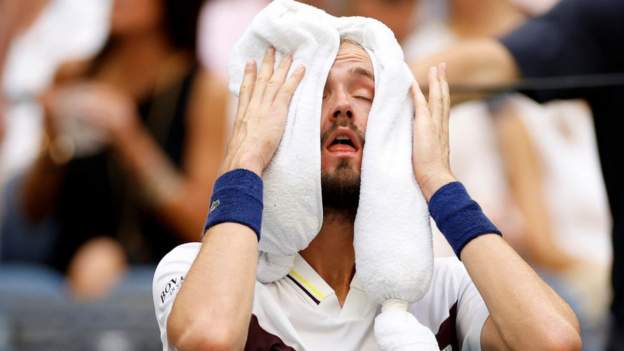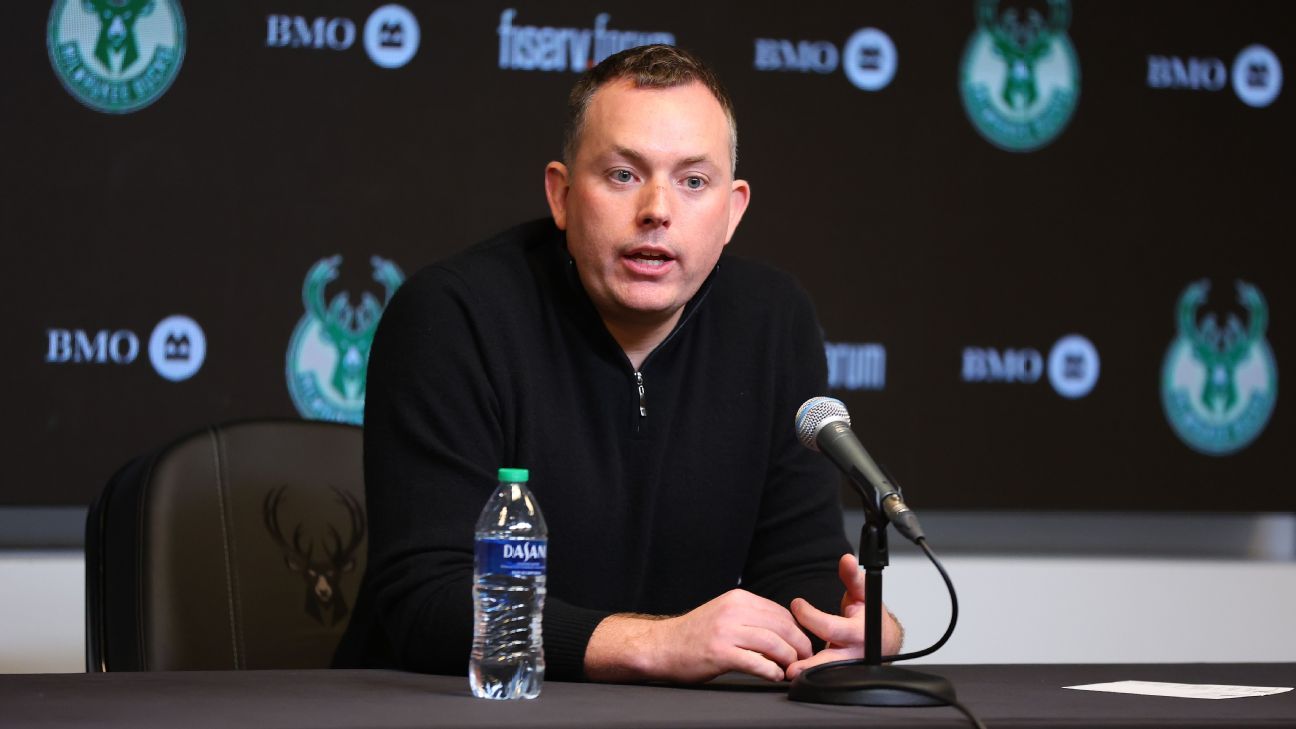US Open 2023: How hot is too hot to play a Grand Slam?
Written by I Dig Sports
There has been sweating, dizziness and even the warning from Daniil Medvedev that a player could "die" in the hot conditions at the US Open.
With players again struggling with the heat on one of tennis' biggest stages in temperatures around 35C on Thursday, BBC Sport looks at the impact on their bodies and what organisers do to protect them.
Light-headedness and nausea - what happens to athletes in the heat?
Medvedev and beaten opponent Andrey Rublev were physically and emotionally affected by the extreme conditions during their two hours and 48 minutes on court on Wednesday.
A person's average body temperature is 37C but when athletes push themselves to the limit in high temperatures, heat exhaustion - when the body gets too hot - can occur.
Symptoms include increased breathlessness, cramp, light-headedness and nausea and if not treated properly by cooling the body down, heatstroke can set in and lead to a possible medical emergency.
To try to combat this during their quarter-final, Medvedev and Rublev sat under ice towels, took respite from the sun during lengthy bathroom breaks and hosed themselves with cold water whenever possible.
The excessive amounts of sweat produced by the searing heat also caused Medvedev an unusual problem, as he remarked he had "no skin left on his nose" because of the constant need to wipe his sweat-drenched face.
Britain's Andy Murray, the 2012 US Open champion, based his training for the this year's final Grand Slam around stationary bike sessions in his steam room - with the temperature set to 35C (95F) and 70% humidity - to try and simulate conditions.
In 2018, the conditions at Flushing Meadows were described by Hungarian player Marton Fucsovics as "dangerous" as five male players had to retire from their first-round matches because of heat-related issues.
The tournament five years ago was the first time organisers implemented an extreme heat policy in men's matches as temperatures touched 38C (100F) and humidity levels were above 50% in New York.
Previously, the men's ATP governing body had a discretionary rule for players competing in searing temperatures at the US Open, while the women's WTA already had an extreme heat policy for its players set out.
Serb Novak Djokovic and opponent Fucsovics used the longer break between sets during their first-round tie in 2018 to sit naked in an ice bath next to each other in an effort to escape the stifling surroundings.
How do other tennis Grand Slams beat the heat?
The partial closing of Arthur Ashe Stadium's roof to offer extra shade was a measure brought in on Tuesday when the conditions crossed a threshold for protecting competitors in the heat.
Tournament referee Jake Garner told the Associated Press the new rule, which will be in place until the US Open finishes on Sunday, is "in the best interest of fans and players".
Former world number one John McEnroe said in his television commentary on Wednesday that US Open organisers should consider closing the roof in conditions like the ones faced by Medvedev and Rublev, adding: "These poor guys today they looked like they're going to fall over. It's not humane in a way."
While the American major continues to play on, the Australian Open, which takes place in Melbourne in January, allows for the suspension of play for matches on outside courts due to extreme heat.
The extreme heat policy, which was introduced in 1998, takes into account factors such as air temperature, strength of the sun, humidity and wind speed. However, the rule has come under criticism over the years for not acting quickly enough to ensure players' safety.
In 2014, play was suspended when temperatures soared above 40C for three consecutive days in Melbourne, causing players - including Britain's Jamie Murray - to faint or suffer from heatstroke.
Four years later, organisers unveiled a "more extensive" policy for the 2019 event to permit men's singles players a 10-minute break if conditions reached hazardous levels following more gruelling conditions during the 2018 Australian Open.
Rain might be the biggest threat to Wimbledon every summer but the All England Club still has contingency plans in place if the warm weather does make playing uncomfortable.
Organisers allow all singles categories a break of 10 minutes between certain sets for matches that have not yet been called to court when the heat stress index - a guide which measures the effect of difficult conditions on the human body - is at or above 30.1C.
However, Sport 2050, a BBC Sport study, found that a temperature of 39C to 40C is plausible at Wimbledon in the future, according to a team of climate science experts at the Met Office.
'They could push themselves to the point of collapse'
Mike Tipton is a professor of human and applied physiology at Portsmouth University and told BBC Radio 5 Live he believes the conditions that tennis was being played in are "regarded as on the edge of a serious risk to health".
"These are elite athletes in the peak of physical condition and they're still pushing themselves to the limit," he said.
"Of course, because they're elite and in a competitive environment with high levels of prizes to be won, there is every possibility that they could push themselves to the point of collapse."
Tipton has worked with many sports people at his "extreme environments laboratory", including British triathletes Alistair and Jonny Brownlee.
The professor believes that redrawing the global sporting calendar in step with global warming needs to be looked at.
"It's not just tennis. We are seeing heat-related problems in cycling, cricket and we are about to have a Rugby World Cup in blisteringly hot conditions in France," he added.
"That will have to be a consideration."















 Phone: (800) 737. 6040
Phone: (800) 737. 6040 Fax: (800) 825 5558
Fax: (800) 825 5558 Website:
Website:  Email:
Email: 






